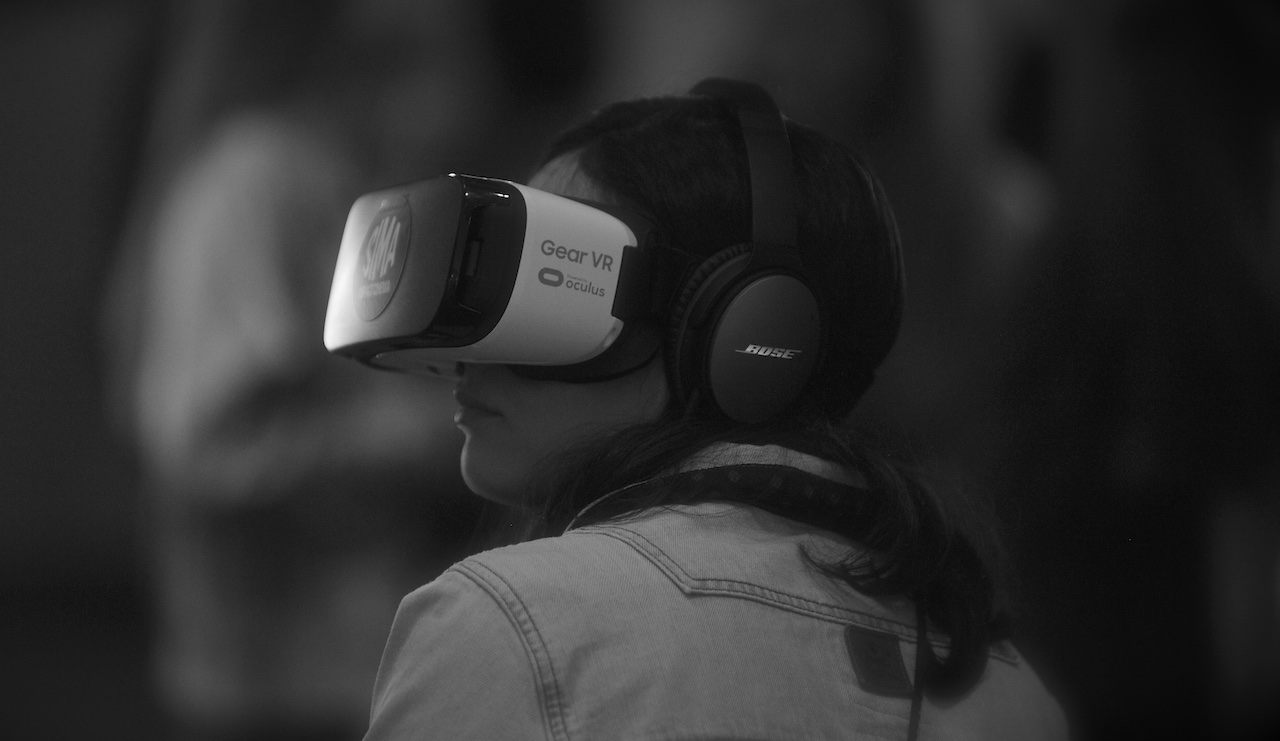LESSON PLAN


The goal of this lesson plan is to teach your students how to create 360° media, a new format that captures the world in every direction at once — up, down, and all around. It’s an incredible, immersive experience, as if you were dropped into someone else’s shoes.
BENEFITS:
This lesson plan aligns with Global Competency standards, including:
Global Competence Assessment – PISA
Global competence is the capacity to analyze global and intercultural issues critically and from multiple perspectives, to understand how differences affect perceptions, judgments, and ideas of self and others, and to engage in open, appropriate and effective interactions with others from different backgrounds on the basis of a shared respect for human dignity.
Knowledge
Skills
Attitudes
Global Competence – Asia Society, Center for Global Education
This lesson plan aligns with these Common Core Standards:
This lesson plan aligns with the International Baccalaureate focus and subjects.
International Baccalaureate Programme
The IB prepares students to succeed in a world where facts and fiction merge in the news, and where asking the right questions is a crucial skill that will allow them to flourish. The programmes focus on teaching students to think critically and independently, and how to inquire with care and logic.
Diploma Programme 16-19 years (DP)
The DP aims to make students aware of the interpretative nature of knowledge, including personal ideological biases. It offers students and their teachers the opportunity to:
Participation in this process develops the capacity to analyze, synthesize and evaluate knowledge.
Subject groups:
Career-related Programme 16-19 years (CP)
The CP enables students to:
Begin by introducing the concept of 360° media to your students and share your thoughts about its use in developing empathy and awareness.
Prior to viewing the films, introduce the SIFT Worksheet. This is a graphic organizer designed to help students keep track of their reactions while viewing the films. Using the worksheet during the film viewing, ask students to notice and record any physical SENSATIONS, any IMAGES that are particularly evocative, any FEELINGS that they experience, and any THOUGHTS that occur to them. Be sure to supply one worksheet per film for each student.
This lesson plan aligns with Global Competency standards, including:
Global Competence Assessment – PISA
Global competence is the capacity to analyze global and intercultural issues critically and from multiple perspectives, to understand how differences affect perceptions, judgments, and ideas of self and others, and to engage in open, appropriate and effective interactions with others from different backgrounds on the basis of a shared respect for human dignity.
Knowledge
Skills
Attitudes
Global Competence – Asia Society, Center for Global Education
This lesson plan aligns with these Common Core Standards:
This lesson plan aligns with the International Baccalaureate focus and subjects.
International Baccalaureate Programme
The IB prepares students to succeed in a world where facts and fiction merge in the news, and where asking the right questions is a crucial skill that will allow them to flourish. The programmes focus on teaching students to think critically and independently, and how to inquire with care and logic.
Diploma Programme 16-19 years (DP)
The DP aims to make students aware of the interpretative nature of knowledge, including personal ideological biases. It offers students and their teachers the opportunity to:
Participation in this process develops the capacity to analyze, synthesize and evaluate knowledge.
Subject groups:
Career-related Programme 16-19 years (CP)
The CP enables students to:
In addition, ask your students to write down any thoughts and questions they had while watching the films.
Screen the film(s). After watching each film, allow time for students to discuss their reactions either as a class or in small groups.
Hint: This reflection is a critical step in learning from the film as it allows an opportunity for participants to make an emotional connection to the issues through the storytelling.
Facilitate a discussion using the following questions as guidelines:
Invite your students to transform their discussions into a concrete story that will get their message across, putting a spotlight on the issues most relevant to their community. These questions may help your students find their story:
Find more guiding questions in the MY World Challenge Program Guide.
This lesson plan aligns with Global Competency standards, including:
Global Competence Assessment – PISA
Global competence is the capacity to analyze global and intercultural issues critically and from multiple perspectives, to understand how differences affect perceptions, judgments, and ideas of self and others, and to engage in open, appropriate and effective interactions with others from different backgrounds on the basis of a shared respect for human dignity.
Knowledge
Skills
Attitudes
Global Competence – Asia Society, Center for Global Education
This lesson plan aligns with these Common Core Standards:
This lesson plan aligns with the International Baccalaureate focus and subjects.
International Baccalaureate Programme
The IB prepares students to succeed in a world where facts and fiction merge in the news, and where asking the right questions is a crucial skill that will allow them to flourish. The programmes focus on teaching students to think critically and independently, and how to inquire with care and logic.
Diploma Programme 16-19 years (DP)
The DP aims to make students aware of the interpretative nature of knowledge, including personal ideological biases. It offers students and their teachers the opportunity to:
Participation in this process develops the capacity to analyze, synthesize and evaluate knowledge.
Subject groups:
Career-related Programme 16-19 years (CP)
The CP enables students to:
Show your students the skills and knowledge they need to be able to amplify their voices using 360° media. There will be three stages in this process.
Pre-production
Production
Post-production:
See resources below for more information on each of these steps.
This lesson plan aligns with Global Competency standards, including:
Global Competence Assessment – PISA
Global competence is the capacity to analyze global and intercultural issues critically and from multiple perspectives, to understand how differences affect perceptions, judgments, and ideas of self and others, and to engage in open, appropriate and effective interactions with others from different backgrounds on the basis of a shared respect for human dignity.
Knowledge
Skills
Attitudes
Global Competence – Asia Society, Center for Global Education
This lesson plan aligns with these Common Core Standards:
This lesson plan aligns with the International Baccalaureate focus and subjects.
International Baccalaureate Programme
The IB prepares students to succeed in a world where facts and fiction merge in the news, and where asking the right questions is a crucial skill that will allow them to flourish. The programmes focus on teaching students to think critically and independently, and how to inquire with care and logic.
Diploma Programme 16-19 years (DP)
The DP aims to make students aware of the interpretative nature of knowledge, including personal ideological biases. It offers students and their teachers the opportunity to:
Participation in this process develops the capacity to analyze, synthesize and evaluate knowledge.
Subject groups:
Career-related Programme 16-19 years (CP)
The CP enables students to:
Ask your students to share their final productions with the class. Each group should introduce their 360° media, explaining why they decided to tell this story and what they learned about production.
This lesson plan aligns with Global Competency standards, including:
Global Competence Assessment – PISA
Global competence is the capacity to analyze global and intercultural issues critically and from multiple perspectives, to understand how differences affect perceptions, judgments, and ideas of self and others, and to engage in open, appropriate and effective interactions with others from different backgrounds on the basis of a shared respect for human dignity.
Knowledge
Skills
Attitudes
Global Competence – Asia Society, Center for Global Education
This lesson plan aligns with these Common Core Standards:
This lesson plan aligns with the International Baccalaureate focus and subjects.
International Baccalaureate Programme
The IB prepares students to succeed in a world where facts and fiction merge in the news, and where asking the right questions is a crucial skill that will allow them to flourish. The programmes focus on teaching students to think critically and independently, and how to inquire with care and logic.
Diploma Programme 16-19 years (DP)
The DP aims to make students aware of the interpretative nature of knowledge, including personal ideological biases. It offers students and their teachers the opportunity to:
Participation in this process develops the capacity to analyze, synthesize and evaluate knowledge.
Subject groups:
Career-related Programme 16-19 years (CP)
The CP enables students to:
These stages may be spread over four lessons or a whole semester depending on how the tasks are assigned to the students.
Review the program guide from Digital Promise Global, which includes resources to help you get ideas about how to use and create 360° media. Select 3-5 films from the SIMA 360/VR films or the Sustainable Development Goals (SDGs) Spotlight. You can also find more information about the Sustainable Development Goals here.
Invite students to create and implement a plan to share their work with a wider audience (school, community, organizations, etc.) Consider the following questions to think about how to present the 360° media project.
Apply here. Applications close November 15 every year, winners are announced November 29. Rolling submissions!

MY World 360º Challenge Program Guide
Google Street View Apps (to capture 360º images)
Pre-production / Production / Post-production
This resource is adapted from MY World 360º, a partnership between Digital Promise Global, the United Nations SDG Action Campaign, and Oculus inviting youth worldwide to create 360° media as a way to share their perspectives and advance positive action toward the Sustainable Development Goals (SDGs). Learn more and get involved here.